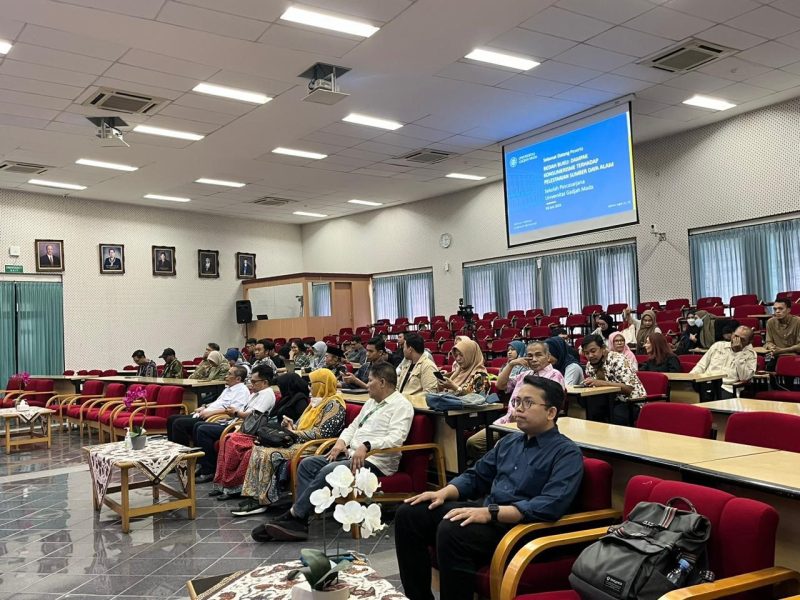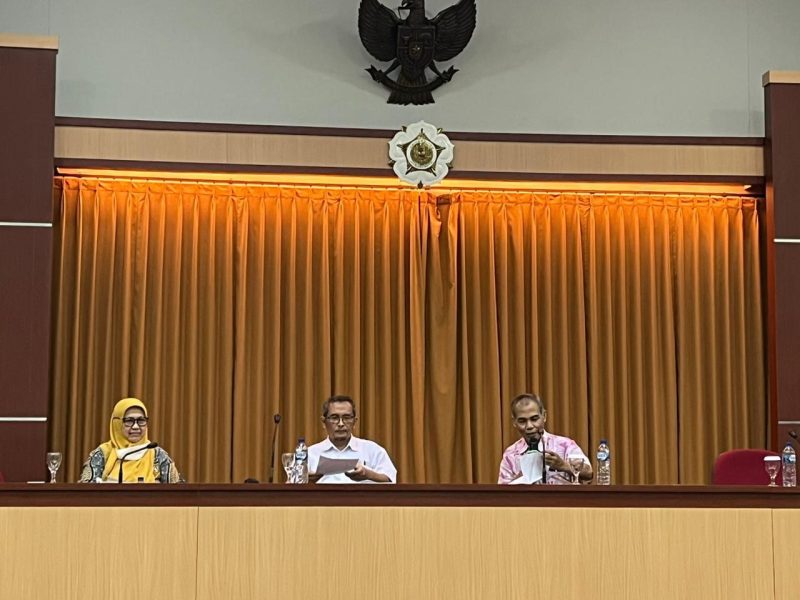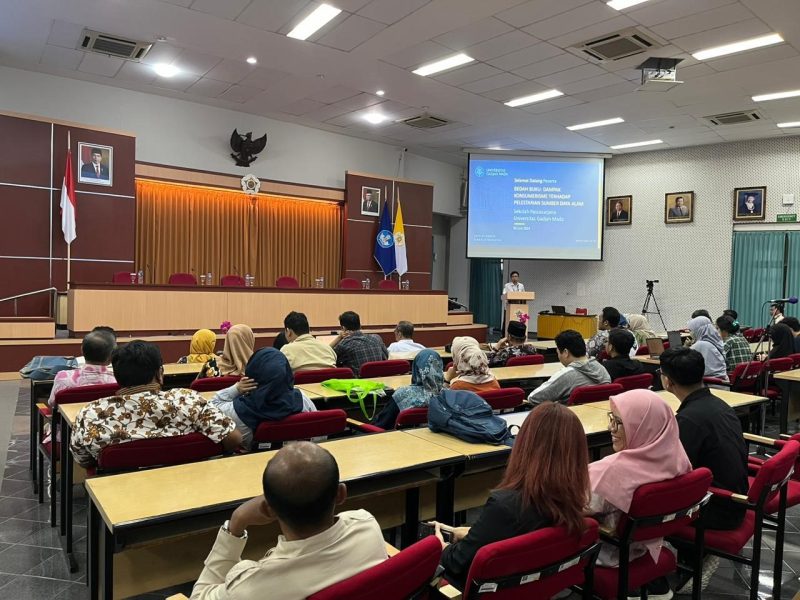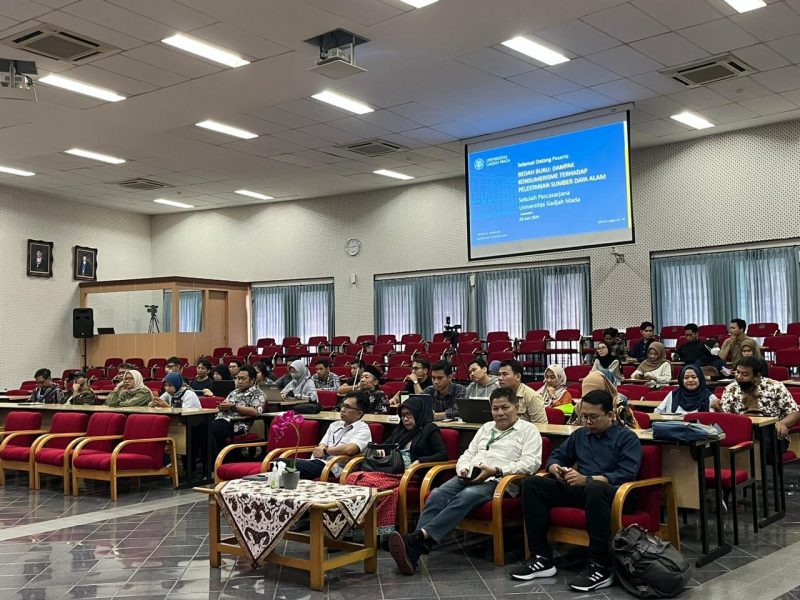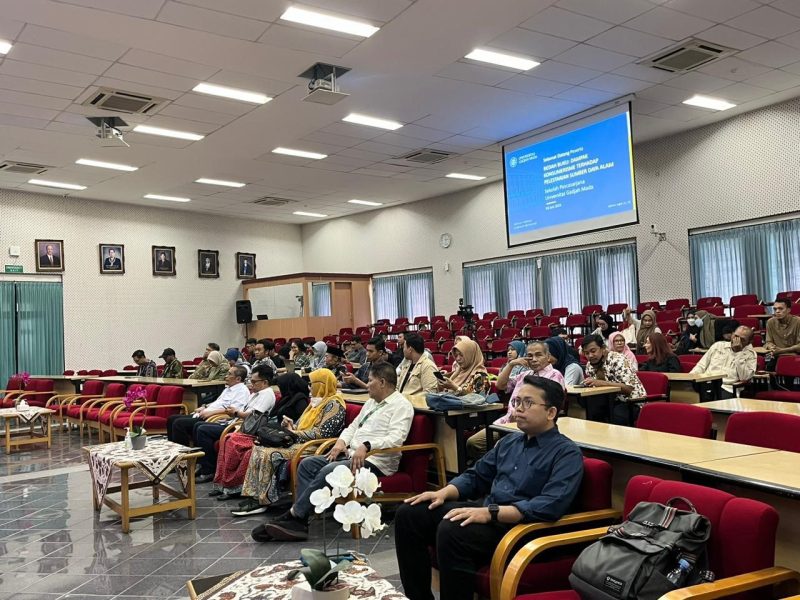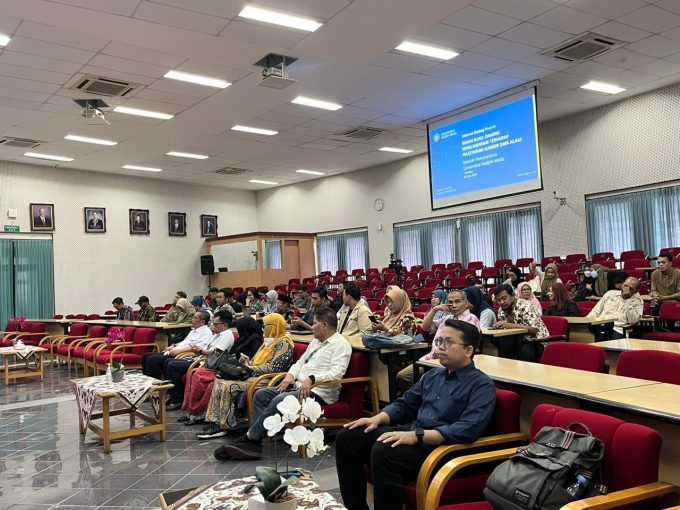
Yogyakarta, June 3rd, 2024 – The Alumni Family of Gadjah Mada University Graduate School (KAPASGAMA) held a book review and critical discussion event with theme “The Impact of Consumerism on Natural Resource Conservation,” authored by Prof. Dr. Armaidy Armawi, M.Si. The book review and discussion took place in the Auditorium of the UGM Graduate School and was opened by the Vice Dean of UGM Graduate School, Dr. techn. Khabib Mustofa, S.Si., M.Kom.
In his opening remarks, Dr. techn. Khabib Mustofa emphasized the importance of understanding the relationship between consumerist lifestyle and environmental conservation. “Through this event, we hope to educate and raise awareness among the academic community about the impact of excessive consumption on the sustainability of natural resources,” he stated.
The event featured chemistry experts as speakers, namely Prof. Dr. Nurfina Aznam, Apt., M.S., a Professor of Pharmaceutical Chemistry from the Faculty of Mathematics and Natural Sciences, UNY, and Prof. Dr. rer.nat. Karna Wijaya, a Professor of Chemistry from the Faculty of Mathematics and Natural Sciences, UGM. The discussion session was interactive, with many participants asking questions and sharing their views on the topic, moderated by Drs. Wahyudi JN, M.Si.
The author explained that consumerism brings various negative impacts, such as social issues (poverty and conflicts of interest among elites) and environmental issues (environmental pollution and degradation of living spaces). This analysis reminds us that excessive consumerist behavior can backfire on human lives.
In this book, consumerism is juxtaposed with the concept of human ecology, a study of the reciprocal relationship between humans and biological communities (nature). The author highlights how human development and the capital circulating within it often trigger conflicts of interest, which will harm the environment and local communities.
The success of this book review and discussion event UGM Graduate School hopes to continue organizing similar activities in the future as part of efforts to support the Sustainable Development Goals (SDGs), particularly SDG 12 on Responsible Consumption and Production and SDG 13 on Climate Action.
Author: Arfikah Istari
Keywords: #BookReview #Consumerism #NaturalResourceConservation #UGMGraduateSchool #SDGs12 #SDGs13

